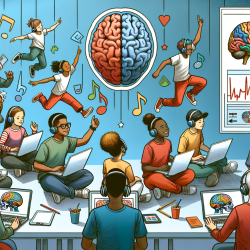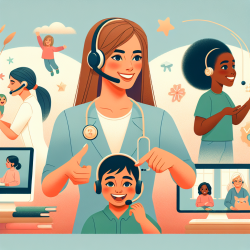Feeling burnt out is a common issue among school-based therapists, and it's no surprise given the increasing demands and limited resources. As government health regulators, you play a crucial role in ensuring that mental health services in schools are both effective and sustainable. One promising solution lies in the use of technology to deliver online therapy services, such as those provided by TinyEYE.
Here’s how technology can make a significant difference:
- Accessibility: Online therapy platforms break down geographical barriers, making it easier for schools in remote areas to access specialized services like speech therapy.
- Efficiency: Digital scheduling and record-keeping streamline administrative tasks, allowing therapists to focus more on their core responsibilities—helping students.
- Flexibility: Virtual sessions offer greater flexibility in scheduling, which can alleviate the stress of back-to-back appointments and reduce burnout.
- Resource Allocation: By using technology, schools can better allocate their limited resources, ensuring that all students receive the support they need without overburdening therapists.
Government health regulators can take several steps to encourage the adoption of online therapy services:
- Policy Development: Establish policies that recognize and support the use of online therapy as a viable option for school-based mental health services.
- Funding: Allocate funding specifically for the implementation of online therapy platforms in schools, ensuring that financial barriers do not prevent their adoption.
- Training: Provide training for school staff and therapists to effectively use online therapy tools, maximizing their potential benefits.
- Evaluation: Implement systems to evaluate the effectiveness of online therapy services, ensuring that they meet the needs of students and therapists alike.
By embracing technology, we can create a more sustainable and effective model for delivering mental health services in schools. TinyEYE’s online therapy services are designed to meet the unique needs of school environments, offering a lifeline to therapists who are feeling burnt out. The next step is clear: it’s time to explore how technology can revolutionize school-based therapy programs.
Let’s work together to ensure that every student has access to the mental health support they need, and that our therapists can continue to provide these essential services without feeling overwhelmed.










